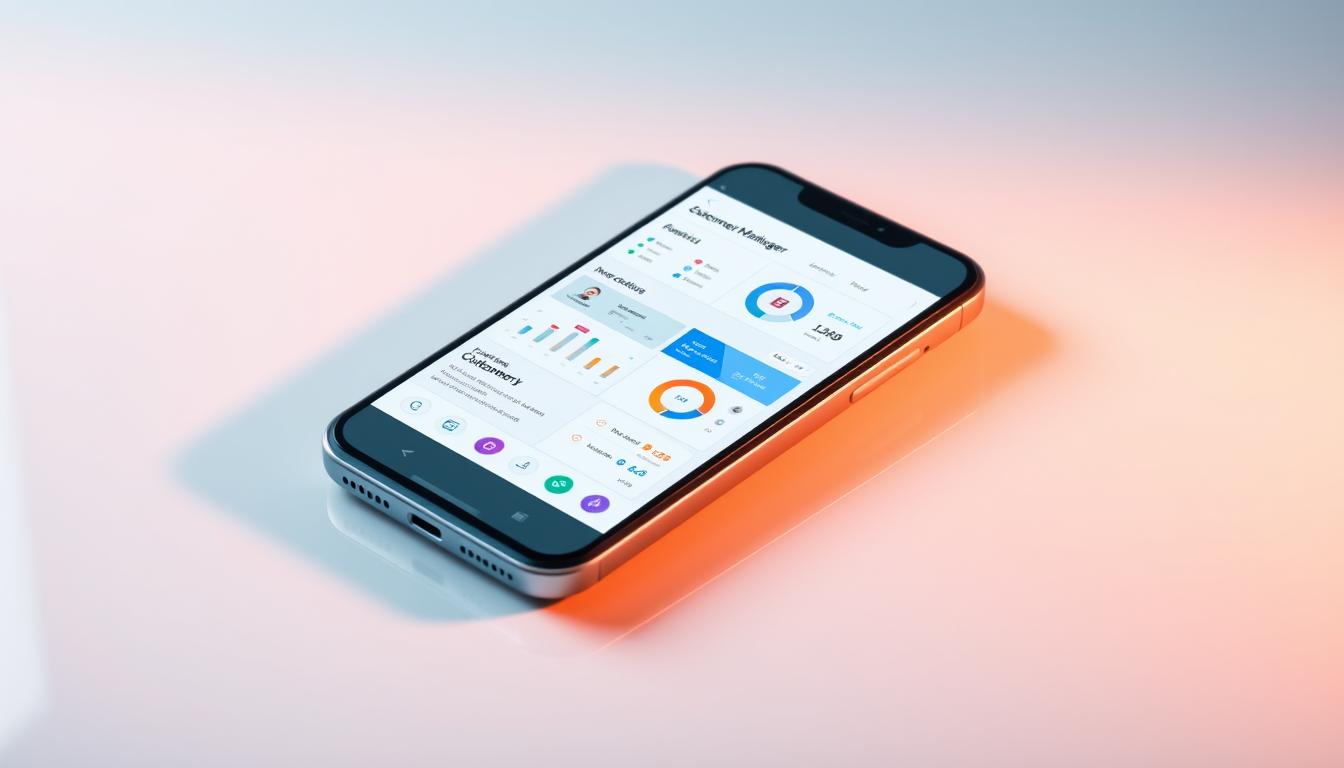|
|
In today’s fast-paced business environment, companies must adopt mobile-friendly solutions to keep up with evolving customer expectations and sales demands. Mobile CRM integration has become a necessity for organizations looking to enhance sales team mobility, improve customer engagement, and drive operational efficiency. By providing real-time access to customer data, sales pipelines, and automated workflows, mobile CRM solutions empower teams to close deals faster, respond to customer inquiries instantly, and optimize field operations seamlessly.
Despite the growing adoption of cloud-based CRM platforms with mobile capabilities, many businesses struggle with inefficient mobile CRM integration due to poor data synchronization, security risks, and low user adoption. Without a proper integration strategy, mobile CRM usage can lead to disconnected workflows, data discrepancies, and ineffective sales performance.
With WiFi Digital’s expertise in CRM integration and mobile optimization, this guide provides expert best practices for seamless Mobile CRM implementation. From choosing the right mobile CRM platform to enhancing data security and leveraging AI-powered automation, businesses will discover how to maximize CRM efficiency and drive business growth through mobile integration.
Choosing the Right Mobile CRM for Business Needs
Selecting the right mobile CRM solution is the first step in creating a fully optimized mobile sales and customer management strategy. With numerous CRM platforms available, businesses must carefully evaluate which solution best aligns with their operational workflows, team structures, and integration needs.
A high-performing mobile CRM should offer real-time access to customer data, sales pipeline management, AI-driven analytics, and seamless integration with communication tools. Leading mobile-friendly CRM solutions like Salesforce Mobile, HubSpot Mobile, Microsoft Dynamics 365, and Zoho CRM provide customizable dashboards, voice-to-text features, geolocation tracking, and offline access, enabling sales reps to stay connected even in low-connectivity environments.
Key factors to consider when selecting a mobile CRM include:
- Cross-Device Compatibility – Ensuring that the CRM functions smoothly across iOS, Android, and tablet devices.
- Real-Time Data Sync – Avoiding discrepancies between mobile and desktop CRM versions through cloud synchronization.
- User-Friendly Interface – Prioritizing intuitive navigation and accessibility to drive high adoption rates among mobile users.
- Third-Party Integrations – Evaluating whether the CRM integrates seamlessly with email platforms, ERP systems, and field service tools.
- AI-Powered Recommendations – Leveraging predictive analytics and intelligent lead scoring to guide sales teams in optimizing their outreach strategies.
By selecting a mobile CRM tailored to business needs, companies can enhance workforce productivity, improve customer interactions, and ensure consistent access to real-time data across devices.
Ensuring Seamless Data Synchronization Across Devices
One of the most common challenges businesses face with mobile CRM integration is data inconsistency across multiple devices and platforms. If CRM data is not properly synchronized, sales teams may end up working with outdated customer information, incomplete transaction records, or mismatched sales pipeline updates, leading to missed opportunities and inefficiencies.
A seamless mobile CRM integration requires real-time cloud synchronization that ensures every update made on mobile devices, desktops, and third-party applications is instantly reflected across all platforms. Businesses should choose cloud-based CRMs that offer automatic sync capabilities, such as Salesforce’s Cloud Sync, HubSpot’s Mobile Sync, or Microsoft Dynamics’ Unified Data Model, to prevent data fragmentation.
Best practices for ensuring consistent CRM data synchronization include:
- Automated Background Syncing – Enabling real-time updates without requiring manual refreshes.
- Offline Mode Functionality – Allowing users to update records and access critical data even in areas with limited connectivity.
- Two-Way Data Integration – Ensuring that CRM data updates are bi-directional, meaning updates made via mobile devices reflect in the desktop CRM and vice versa.
- AI-Driven Duplicate Detection – Preventing redundant or conflicting records by utilizing AI-powered deduplication algorithms.
- API-Based Integration – Connecting mobile CRMs with ERP, email, and marketing platforms to maintain data consistency across all business systems.
By prioritizing real-time data synchronization, businesses can ensure that their sales and support teams always work with accurate, up-to-date customer information, leading to smarter decision-making and higher efficiency.
Enhancing Mobile CRM Security and Compliance
As businesses move towards mobile CRM adoption, data security and regulatory compliance become crucial considerations. Since mobile CRM platforms store and process sensitive customer data, companies must implement robust security protocols to protect against data breaches, unauthorized access, and cyber threats.
Security risks such as stolen mobile devices, unsecured networks, and phishing attacks can expose businesses to data leaks and compliance violations. To mitigate these risks, companies should enforce strong security policies and encryption measures to safeguard CRM data.
Key security best practices for mobile CRM integration include:
- Multi-Factor Authentication (MFA) – Requiring users to verify their identity through biometric authentication, SMS codes, or email verification.
- Role-Based Access Controls (RBAC) – Restricting CRM access based on user roles, ensuring that only authorized personnel can view or modify customer data.
- End-to-End Encryption – Protecting CRM data during storage and transmission using AES-256 encryption.
- Remote Device Management – Enabling IT teams to remotely wipe CRM data from lost or stolen mobile devices.
- Regulatory Compliance Features – Ensuring that the CRM adheres to GDPR, CCPA, and industry-specific regulations to avoid legal complications.
By strengthening mobile CRM security measures, businesses can confidently leverage mobile CRM solutions while protecting customer data, ensuring compliance, and minimizing cybersecurity risks.
Leveraging AI and Automation for Mobile CRM Success
Artificial Intelligence (AI) and automation tools are transforming mobile CRM capabilities, enabling businesses to optimize sales processes, improve customer interactions, and increase operational efficiency. AI-powered mobile CRMs can automate repetitive tasks, provide predictive insights, and enhance lead nurturing strategies.
AI-driven CRM automation can help businesses:
- Prioritize Leads with Predictive Lead Scoring – AI analyzes customer behavior, purchase history, and engagement patterns to identify high-value prospects.
- Automate Follow-Ups and Reminders – AI-powered chatbots and workflow automation tools can send personalized follow-up emails and task notifications based on lead activity.
- Enable Voice-to-CRM Capabilities – Mobile CRMs with voice-to-text features allow sales reps to update records and take notes using voice commands, improving efficiency while on the go.
- Provide Real-Time Customer Insights – AI-powered CRM dashboards analyze historical data and engagement trends to offer data-driven sales recommendations.
By integrating AI and automation into mobile CRM workflows, businesses can enhance sales performance, customer engagement, and overall productivity, ensuring that teams work smarter and close deals faster.
Optimizing Mobile CRM Adoption and Training
Even with the most powerful mobile CRM platform, businesses can struggle with low adoption rates if employees are not properly trained. Sales reps and customer service teams may resist mobile CRM usage due to complex interfaces, lack of onboarding support, or unfamiliarity with mobile-friendly features.
To ensure successful mobile CRM adoption, businesses should implement:
- Role-Specific Training Programs – Tailoring training sessions based on sales, marketing, and customer support needs.
- Hands-On Workshops and Real-World Use Cases – Providing interactive learning experiences that mimic real sales scenarios.
- Mobile CRM Gamification – Encouraging adoption through leaderboards, incentives, and rewards for CRM usage.
- Ongoing Support and CRM Optimization – Continuously refining the CRM based on user feedback and performance analytics.
By prioritizing employee training and CRM usability, businesses can increase mobile CRM engagement, ensuring that teams fully leverage CRM features for greater efficiency and business success.
Mobile CRM integration is a game-changer for businesses seeking to increase productivity, improve customer engagement, and enhance sales performance. By following best practices in CRM selection, data synchronization, security implementation, AI-powered automation, and user training, organizations can ensure seamless mobile CRM adoption that drives long-term growth and efficiency.
With WiFi Digital’s expertise in mobile CRM optimization and integration, businesses can develop tailored mobile CRM strategies that improve workforce mobility, data accuracy, and customer satisfaction. Now is the time to embrace mobile CRM solutions and future-proof business operations for the digital age. 🚀
WiFi Digital: Connecting Businesses to the Digital Future
In today’s fast-paced world, where a strong digital presence is essential for business growth, WiFi Digital emerges as a strategic partner for small and medium-sized businesses (SMBs). Founded in 2023 and based in London, Ontario, the company has a clear mission: to provide affordable, high-quality solutions that help businesses thrive online. With an experienced and passionate team, WiFi Digital goes beyond simply creating websites and marketing strategies. Its purpose is to empower entrepreneurs, strengthen brands, and give clients more free time to focus on what truly matters – growing their business and improving their quality of life.
WiFi Digital develops websites that authentically and professionally represent your brand, optimizes systems and digital marketing strategies to enhance visibility and return on investment (ROI), and offers affordable, customized solutions, ensuring that businesses of all sizes have access to effective growth tools. With transparency, partnership, and innovation, the company provides each client with the necessary support to achieve real results.
Business digitalization is not just about numbers or metrics. It directly impacts entrepreneurs’ well-being, bringing more organization, efficiency, and freedom to focus on what truly matters. WiFi Digital understands that by investing in digital solutions, businesses gain time, reduce operational stress, and create opportunities to connect better with their customers. A well-structured online presence not only increases sales but also strengthens the public’s trust in the brand.
Beyond technical expertise, WiFi Digital’s key differentiator is its commitment to people. The company values genuine relationships, creates tailored strategies, and works side by side with clients to ensure that every solution meets their specific needs. If you’re looking to boost your brand, attract more customers, and still have more time to focus on what truly matters, now is the time to act!
💡 Transform your digital presence with experts who understand your needs.
📩 Contact us now: contact@wifidigital.ca
🌍 Learn more: www.wifidigital.ca
🚀 Your growth starts here!




